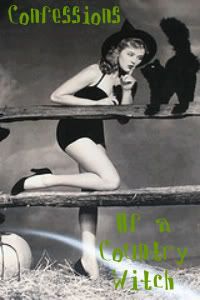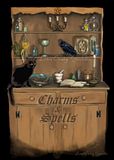I cannot stress enough, when growing anything, whether it’s in the ground itself, or in containers, the dirt is where it’s at!
There is no other way, other than having a good base to start in, in order to have great success in growing anything!
When people come to my garden, I always get the same comment…”well, how come mine don’t look like that?, and I even started mine earlier than yours?” My reply “Do you religiously amend your soil either in the fall or spring, every planting season?” Their reply.”no”. I then chuckle, well that’s why yours look the way they do, and also, you now know, why your yields are so low each year as well.
No amount of “miracle Gro garden fertilizer” will make your plants grow into robust, bushy, healthy plants that they show on TV. Well maybe it will a little bit, but think of it this way…..think if you had to live on just the bare minimum, having only the barest essentials, enough to keep you alive. You wouldn’t thrive, you wouldn’t be really exceptionally fit. That’s the way our plants feel also! Plopping them into crappy soil, and pumping them full of fertilizer, expecting them to do their best, is well, silly.
I amend my raised beds, every single planting season. Usually with a bucket or 2 of good plain ole’ composted horse poo. The stuff works wonders and gives my plants what they need every year, for optimum growth. I also rotate my crops from one bed to another, which helps for preventing disease, and keeps the crop from depleting to much of the nitrogen in the soil. Corn is a good one for this. However any kind of legumes, I.e. such as peas and beans will actually fix nitrogen into the soil on their own.
Either way, I still add some more compost to the beds to keep ahead of things. I also do not add any chemical fertilizers to my gardens, EVER! I don’t need to. Compost is the ONLY and the BEST way to get those veggies and flowers to grow. I never spray pesticides and the like, I would rather pick a few pesky bugs off the plants than to spray, besides, this is another reason why you should rotate your crops, always planting them in a different location each season. Helps prevent disease as well.
Weed prevention is another bane of gardeners. A good heaping helping of mulch does the trick. Plants don’t have to compete with the weeds for nutrients in the soil this way.
So in short…..good soil is the building blocks for good crops. There are many natural amendments you can add to your soil to give it that light fluffy texture chocked full of nutrients.
Here is a list of organic ingredients that can be added in the fall after the harvest is done, and you are putting everything to bed. This way, it sits in the soil and “ages“ or “rots” even more until spring arrives when you till it in even further before planting time again.(With the exception of the compost which can be added at any time. Compost can be even added as a side dressing for your plants, and acts as a mulch.)
Organic soil amendments
Compost
Moisture retention - Good
Nutrient retention - excellent
PH - usually acidic
And it’s easy to make at home
Cow manure (dry, not fresh)
Moisture retention - Good
Nutrient retention - good
PH - usually alkaline
Best used dry
Leaf mold
Moisture retention - excellent
Nutrient retention - excellent
PH - slightly acidic
Oak leaves are best, shred or chop before use
Horse manure
Moisture retention -good
Nutrient retention - good
PH - usually alkaline
Best used dry
Sphagnum peat moss
Moisture retention - excellent
Nutrient retention - excellent
PH - acidic
Moisten before in cooperating into soil
Steer manure
Moisture retention - good
Nutrient retention - good
PH - usually alkaline
May contain weed seeds and salt
Tree bark
Moisture retention - good
Nutrient retention - good
PH - slightly acidic
Use only shred or ground bark for soil amending
Wood ashes
Moisture retention - good
Nutrient retention - good
PH - highly alkaline
Use only in sandy soils
Chicken manure
Moisture retention - good
Nutrient retention - good
PH - alkaline
Use only very dry and old chicken manure (aged), as it will burn plants if put onto them “green”
Soil for containers is another story, I usually mix my own, since plants in containers need that extra “fluffy” soil for good drainage. I take the container than the plants will be in, add a little less than half full of regular garden soil, then add 1 part of compost, and then add horticultural perlite and vermiculite for added drainage and moisture retention, I add enough of both until I have a light and fluffy mixture. Experiment, with mixing your own potting soil, and you’ll get it just right.
During the spring this year, I will be adding some how to videos on soil building, and seed planting, etc.
Jo.
There is no other way, other than having a good base to start in, in order to have great success in growing anything!
When people come to my garden, I always get the same comment…”well, how come mine don’t look like that?, and I even started mine earlier than yours?” My reply “Do you religiously amend your soil either in the fall or spring, every planting season?” Their reply.”no”. I then chuckle, well that’s why yours look the way they do, and also, you now know, why your yields are so low each year as well.
No amount of “miracle Gro garden fertilizer” will make your plants grow into robust, bushy, healthy plants that they show on TV. Well maybe it will a little bit, but think of it this way…..think if you had to live on just the bare minimum, having only the barest essentials, enough to keep you alive. You wouldn’t thrive, you wouldn’t be really exceptionally fit. That’s the way our plants feel also! Plopping them into crappy soil, and pumping them full of fertilizer, expecting them to do their best, is well, silly.
I amend my raised beds, every single planting season. Usually with a bucket or 2 of good plain ole’ composted horse poo. The stuff works wonders and gives my plants what they need every year, for optimum growth. I also rotate my crops from one bed to another, which helps for preventing disease, and keeps the crop from depleting to much of the nitrogen in the soil. Corn is a good one for this. However any kind of legumes, I.e. such as peas and beans will actually fix nitrogen into the soil on their own.
Either way, I still add some more compost to the beds to keep ahead of things. I also do not add any chemical fertilizers to my gardens, EVER! I don’t need to. Compost is the ONLY and the BEST way to get those veggies and flowers to grow. I never spray pesticides and the like, I would rather pick a few pesky bugs off the plants than to spray, besides, this is another reason why you should rotate your crops, always planting them in a different location each season. Helps prevent disease as well.
Weed prevention is another bane of gardeners. A good heaping helping of mulch does the trick. Plants don’t have to compete with the weeds for nutrients in the soil this way.
So in short…..good soil is the building blocks for good crops. There are many natural amendments you can add to your soil to give it that light fluffy texture chocked full of nutrients.
Here is a list of organic ingredients that can be added in the fall after the harvest is done, and you are putting everything to bed. This way, it sits in the soil and “ages“ or “rots” even more until spring arrives when you till it in even further before planting time again.(With the exception of the compost which can be added at any time. Compost can be even added as a side dressing for your plants, and acts as a mulch.)
Organic soil amendments
Compost
Moisture retention - Good
Nutrient retention - excellent
PH - usually acidic
And it’s easy to make at home
Cow manure (dry, not fresh)
Moisture retention - Good
Nutrient retention - good
PH - usually alkaline
Best used dry
Leaf mold
Moisture retention - excellent
Nutrient retention - excellent
PH - slightly acidic
Oak leaves are best, shred or chop before use
Horse manure
Moisture retention -good
Nutrient retention - good
PH - usually alkaline
Best used dry
Sphagnum peat moss
Moisture retention - excellent
Nutrient retention - excellent
PH - acidic
Moisten before in cooperating into soil
Steer manure
Moisture retention - good
Nutrient retention - good
PH - usually alkaline
May contain weed seeds and salt
Tree bark
Moisture retention - good
Nutrient retention - good
PH - slightly acidic
Use only shred or ground bark for soil amending
Wood ashes
Moisture retention - good
Nutrient retention - good
PH - highly alkaline
Use only in sandy soils
Chicken manure
Moisture retention - good
Nutrient retention - good
PH - alkaline
Use only very dry and old chicken manure (aged), as it will burn plants if put onto them “green”
Soil for containers is another story, I usually mix my own, since plants in containers need that extra “fluffy” soil for good drainage. I take the container than the plants will be in, add a little less than half full of regular garden soil, then add 1 part of compost, and then add horticultural perlite and vermiculite for added drainage and moisture retention, I add enough of both until I have a light and fluffy mixture. Experiment, with mixing your own potting soil, and you’ll get it just right.
During the spring this year, I will be adding some how to videos on soil building, and seed planting, etc.
Jo.































No comments:
Post a Comment